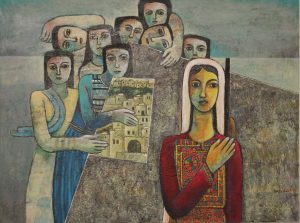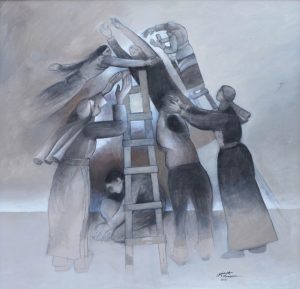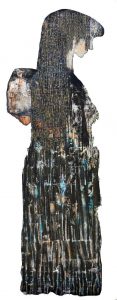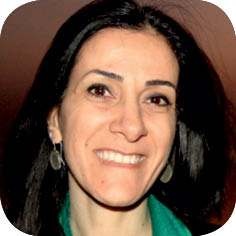On International Women’s Day, it is impossible to talk about women’s axis in isolation from the general reality, elements, and other components of society. I am a supporter of women and men and their joint efforts.
I would like it to be a day in the name of women and men, as the process of real human development requires the participation of men and women together in real and effective economic, social, political, and cultural fields. This is done through the integration and institutionalization of gender issues in all plans, in daily life, in families, and in programs and projects in order to bridge the gender gap in multiple spheres of life.
Poets have written about the role of women throughout the ages as the guardians of the fire, the front-runners, the fountains of love, avant-garde pioneers, martyrs, captives in an occupied homeland, steady in the midst of changing culture, educated in the valleys of ignorance, and perseverant against all odds. Palestinian women are not just Dalal Mughrabi, Leila Khaled, Samiha Khalil, Elizabeth Nasser, Zulikha Shehabi, Hind Husseini, Fatima Abu Al-Saud, Amina Al-Husseini, and Henrietta Siksek, to name a few. And they are not only the parliamentarians, poets, novelists, community activists, school teachers, doctors, engineers, and housewives. They are all these together, with a long history of giving and sharing for humanity, for freedom, and for Palestine.
The role of Palestinian women in political and public life is weak and limited. Just read the reports of the Palestinian Central Bureau of Statistics,* or consider the few seats in the Legislative Council and the low percentages obtained by women in the legislative elections in 1996 and 2006: they indicate a number of facts. The most important among them is that Palestinian society, through all its social groups and political parties, has not yet managed to overcome the dilemma of unfairness based on gender and still considers women unqualified to be in leadership and decision-making positions that make them partners.

Despite the efforts of the Palestinian women’s movement to raise political awareness and make a real difference in the representation of women, it has not been able to fully do so. In a traditional society such as that of Palestine, where the legal aspect plays a greater role than in democratic civilized countries, the issue of working on the legal amendment of election laws is a priority to be tackled by civil society organizations in general and women’s organizations in particular.
Nevertheless, there are many successful individual models of Palestinian women who are leading national and political parties and institutions. This foreshadows the potential to open up horizons for younger generations to become more involved in public life. The participation of women in grassroots organizations and movements is broad and effective but limited in decision-making positions. Hence political parties must assume the primary responsibility for the weak representation of Palestinian women in political participation and in public life. These parties themselves lack adequate representation of women, although there are some women in party leadership, such as Ms. Khaleda Jarrar and Ms. Zahira Kamal.

Despite all efforts that have been made at the local and global levels, such as joining organizations that work for gender equality, and despite the signing of many conventions, such as CEDAW, that combat discrimination, especially against women, what we see on the ground does not reflect the results of these efforts.
Women have a role in pushing forward the process of liberation. We emphasize the multiple forms of power that women possess. If change in society and freedom are to be realized, women must believe in their abilities and eliminate forms of oppression and inferiority. The change begins when women consider that they have the same status and potential as men in thought, logic, work, leadership, decision-making, challenge, and response, as well as in love and tenderness. The solution begins when discrimination against women that is found in law and practice can be confronted. And from where I stand as the director of the Yabous Cultural Centre and as a member of the boards of many institutions and committees, I am proud to exercise my role and my natural right as a woman.

We are all responsible for bringing about real change in the status of women in society, in educating and raising society’s view of women in practice and work, and in the application of law and accountability. I practice my natural right each and every day. And so should you.
* Press release on the Eve of Women’s Day 2018, Palestinian Central Bureau of Statistics, available at
http://www.pcbs.gov.ps/portals/_pcbs/PressRelease/Press_En_7-3-20148-women-en.PDF.


